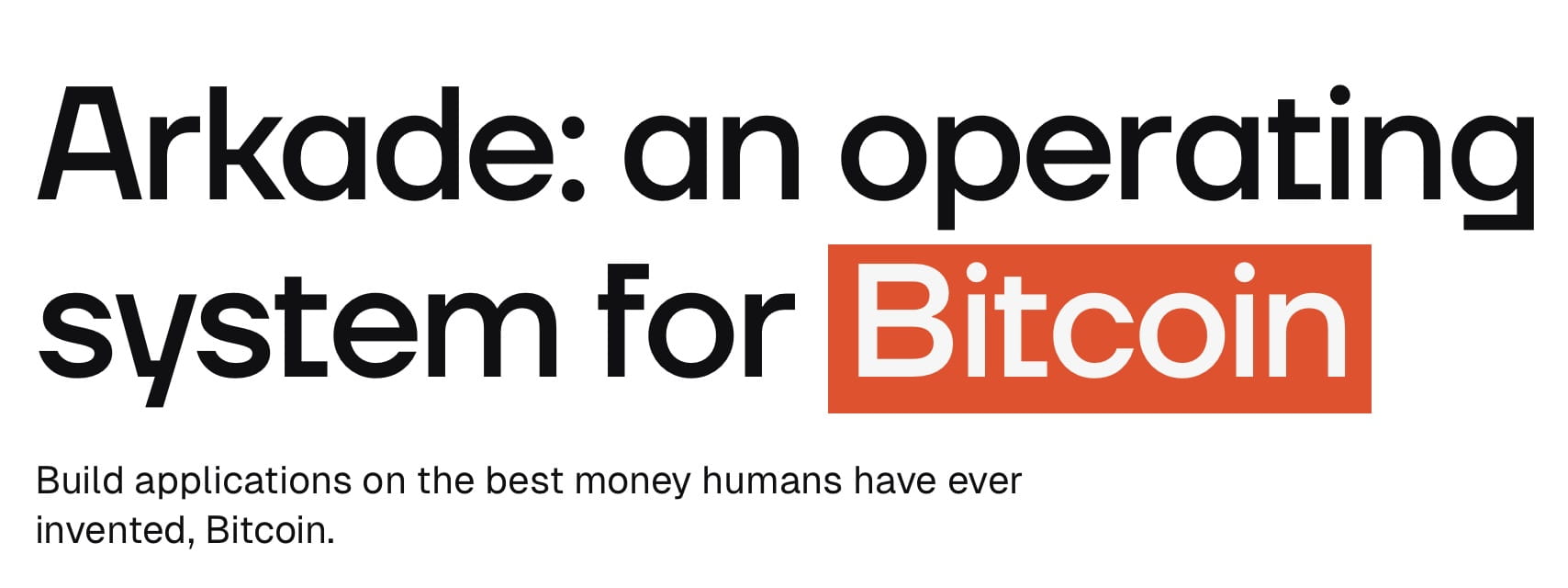
In the earliest cryptocurrency system, Bitcoin, programmability has long been a technological gap that could not be crossed. Bitcoin's native scripting language, UTXO, is not Turing complete, cannot execute loops, or maintain state memory, which severely limits any attempts to deploy smart contracts or complex transaction logic on the main chain. This design certainly enhances security and predictability but also significantly compresses the space for innovation.
The Ark Labs startup team is trying to rewrite this state; they are developing a Bitcoin Layer 2 protocol called Arkade, attempting to unlock Bitcoin's programmable potential and lay the groundwork for the next stage of Bitcoin finance.
Arkade provides a new model for Bitcoin application development
Arkade's founding point comes from questioning the Lightning Network. Although the Lightning Network has significantly improved the speed and efficiency of Bitcoin micropayments, there are still bottlenecks in usability and global scalability.
Alex B, the head of Ark Labs, stated that asking users to download an app and prepay some liquidity funds is unreasonable. To address these pain points, Arkade adopts a virtual UTXO model. User funds are batch processed by the protocol and can be retrieved at any time using a unilateral exit mechanism. This not only provides a smooth user experience but also retains the 'self-custody' rights that Bitcoin users care most about.
Through a virtual Memepool, no sidechains or bridges are needed.
Arkade has garnered attention because it breaks away from the traditional dependency structure on 'blockchain scalability'. It does not attempt to establish a new chain nor rely on bridges, but operates through a system of virtual Memepool, where transactions and balance states among users are managed entirely by a centralized operator. However, with a bi-directional exit design, it ensures that even if the operator loses efficacy, users can still retrieve their assets. This structure not only reduces execution costs but also effectively addresses the 'data availability' and 'verification trust' issues faced by most sidechains and Rollups.
Arkade and the Lightning Network are complementary, not competitors.
Although Arkade was initially misunderstood as an alternative to the Lightning Network, Ark Labs emphasizes that these two systems are actually complementary, not competitors. The Lightning Network provides instant micropayments, similar to 'SWIFT' in cryptocurrency, while Arkade is more like a 'financial toolbox' that combines self-custody, scalability, and simplified payment processes. Under Arkade's architecture, developers can design more financially flexible applications on Bitcoin, such as:
Bitcoin-priced loans
Self-trust leveraged trading
Multi-signature insurance contracts
Collateralized stablecoin issuance
Oracle-driven derivatives market
Arkade aims to expand Bitcoin's extended financial products.
Bitcoin's market value has now exceeded two trillion dollars, and more and more communities wish to conduct capital operations within the Bitcoin ecosystem without relying on centralized exchanges or cross-chain bridges. Arkade provides the infrastructure for such needs, presetting without sacrificing Bitcoin's inherent security and censorship resistance. Alex B explains, 'We don't need an entire chain, nor do we need consensus, we just need to maintain a local state of our own virtual UTXO, which is enough to build a highly efficient financial platform.'
Currently, Arkade is preparing for the testing phase, ready to integrate and generate interoperability with Lightning and other protocols in the ecosystem like BitVM, Spiderchains, and others.
Faced with competition from applications on Ethereum and other chains, Arkade does not aim to replace them but to provide a scalable protocol that can operate on Bitcoin. It seeks to attract developers looking for a stable and trustworthy environment to migrate existing DeFi applications to Bitcoin.
The Lightning Network addresses payments, while Arkade targets programmable financial extension products based on Bitcoin. Bitcoin is moving towards centralization, but many communities still wish to self-custody. The emergence of Arkade may fill the gap between that technology and demand.
This article discusses how the Arkade protocol expands Bitcoin's programmable limits, developing new attempts at BitFi financial technology, first appearing in Chain News ABMedia.



